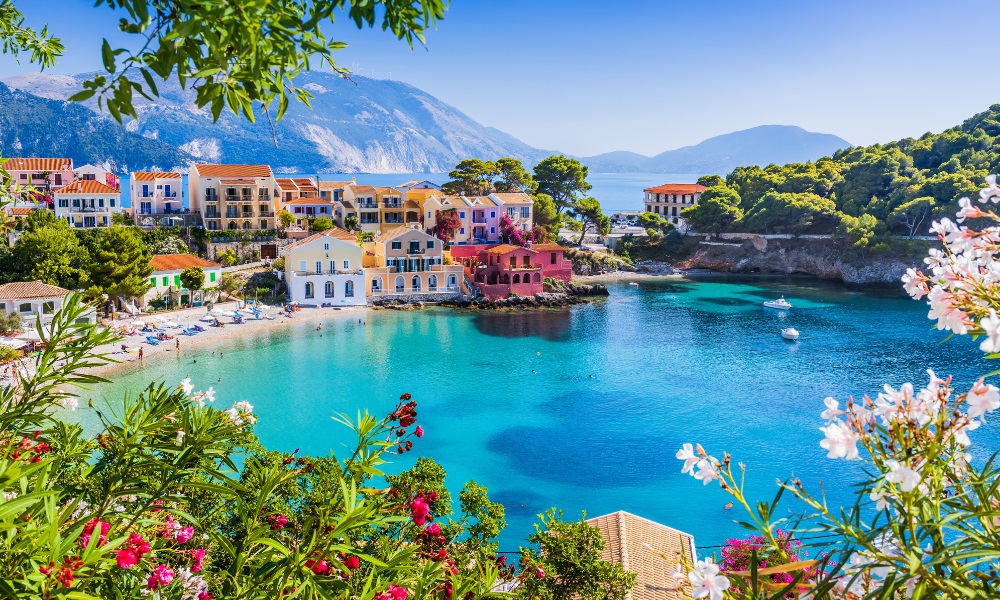Monday, July 31, 2023

A temperature rise of 3°C or 4°C will reduce the number of summer tourists by almost 10% in southern coastal regions, and raise demand for northern coasts by 5%, projections show.
Southern coastal regions are expected to lose tourists during the summer, particularly under 3°C and 4°C warming scenarios, while northern European coastal regions will see increased tourism demand, according to a new study.
Across the continent, tourist interest will fall in July and grow in April. With seasonal shift of demand across the continent, tourism will still grow, according to the projections.
The study Regional impact of climate change on European tourism demand assesses changes in tourism demand under four climate futures, the Paris Agreement targets (1.5°C and 2°C) and two higher warming levels (3°C and 4°C).
According to the projections, the overall impact on European tourism demand is expected to be positive, with a projected rise of 1.58% for the highest warming scenario (4°C), but the aggregated results hide a high diversity across regions.
There’s a clear north-south pattern, with tourism demand gains in central and northern Europe and lower demand in the south.
As the most visited region in the world, accounting for 51% of all international arrivals (743 million tourists in 2019), Europe relies heavily on tourism as a major economic driver, directly generating 5% of EU GDP.
Adding the contribution of ancillary sectors, tourism directly and indirectly contributes more than 10% of EU GDP.
However, as temperatures rise and weather patterns become more unpredictable, action to achieve tourism sustainability is needed.
The study is the first regional assessment that explores the historical and potential future influence of climate on European tourism demand, revealing a consistent and robust relationship between the two.
Based on data from 269 European regions over a 20-year monthly timespan, the study maps the effect of current climatic conditions on tourism and simulates future impacts through the year 2100, relying on 10 climate models and considering four warming levels (1.5°C, 2°C, 3°C and 4°C).
In a 1.5°C warming climate, the majority (80%) of the European regions are projected to be affected by climate change only in a rather small proportion, the flow of tourists visiting those regions fluctuating between -1% and +1%.
The results are rather similar for the 2°C warming scenario.
Under the highest emission scenario, the most significant effect of climate change on tourism demand is projected for coastal regions, e.g., a 9.12% decline for the Greek Ionian Islands and a 15.93% increase for West Wales (UK).
Additionally, the largest losses more than 5% are projected across Cyprus, Greece, Spain, Italy, and Portugal regions, while the highest gains above 5% are distributed across Germany, Denmark, Finland, France, Ireland, Netherlands, Sweden and United Kingdom.
Seasonal shifts
Seasonality patterns are expected to undergo substantial changes, with varying impacts across regions.
Northern European coastal regions are expected to see more than a 5% increase in demand during summer and early autumn months.
Conversely, southern coastal regions are projected to lose nearly 10% of summer tourists compared to the present, particularly in warmer climate scenarios (3°C and 4°C).
In these regions, the decline in summer demand is partially offset by higher tourist visits in spring, autumn, and winter.
In aggregated terms, the month of April is expected to see the highest increase in tourist flows reaching a +8.89% compared to the present in a 4°C scenario.
The largest decline in European tourism demand is projected for July, ranging from -0.06% in the 1.5°C scenario to -5.72% under the warmest climate scenario.
Sunday, April 28, 2024
Sunday, April 28, 2024
Monday, April 29, 2024